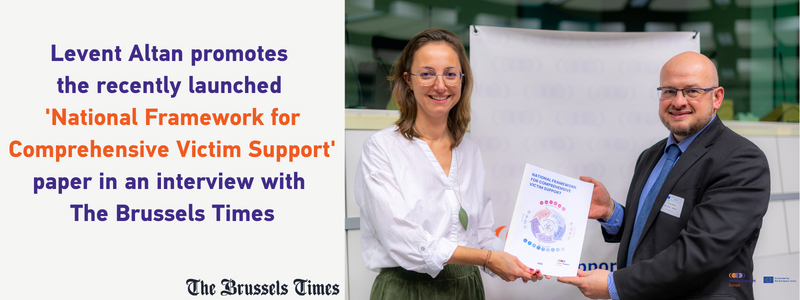The Fight Against Labour Exploitation in Hungary

Socio-economic changes have always impacted the structure of employment, the labour market and the perception of its actors. For decades, ageing and shrinking European societies have tried to respond to these phenomena by employing migrant ‘guest workers’. While employment models in Hungary are currently changing and involving, a rise in migrant workers has been identified. However, international experience suggests that these migrants are often likely to be victims of labour exploitation.
As studies and research on the phenomenon of human trafficking typically focus on sexual exploitation, little attention has been paid in Hungary to labour exploitation and trafficking. The INVERT project[1] (Identifying CompaNies and Victims in the Exploitation phase to DisRupt the financial business model of adult and child labour Trafficking) aims to fill this gap.
Labour Exploitation in Hungary
In Hungary, the main form of labour exploitation is ‘domestic servitude’, the employment of those working as nannies or cleaners, etc., who are often are forced to commit crimes and other unlawful acts. Domestic servitude which involves exploitation in the place of residence, further confines such latent acts within four walls. International literature typically defines labour exploitation in terms of the employment of third-country nationals and the exploitation that takes place during such employment. Given the presence – and anticipated future arrival – of migrant workers in Hungary, we should review Hungarian practices, despite the limited number of practical cases available.
[1] https://en.okri.hu/index.php/2-uncategorised/103-windt-szandra
[2] https://en.okri.hu/index.php/research/external-research-projects
[3] Identifying CompaNies and Victims in the Exploitation phase to disRupt the financial business model of adult and child labour Trafficking (INVERT), 101101914, https://en.okri.hu/index.php/research/external-research-projects and https://invert-project.eu/about-the-project/
Partnership – Cooperation
Despite the considerable efforts undertaken by Hungarian and European law enforcement agencies to curb human trafficking, more and more cases – including instances of labour exploitation – are coming to light as a result of better training, discussions related to known cases, and joint reflection. While domestic servitude practices have been identified, we must now be prepared for labour exploitation, in spite of the majority of ‘regular’ employees feeling ‘exploited’ at work. Simultaneously, addressing employment irregularities and labour trafficking, which is already a criminal offence, require law enforcement officers (not only the police and prosecutors, but also immigration and labour inspectors who carry out checks) to improve their knowledge and awareness of this subject.
What can we do to prevent labour exploitation? We can involve companies in high-risk sectors and train members of public authorities who interact with workers in various sectors. We can develop a checklist to help detect victims of trafficking and report suspected criminal activities to the appropriate body.
The National Directorate General for Aliens Policing (OIF) issues residence permits for employment purposes to third-country nationals wishing to work in Hungary. By making the permit application an in-person process rather than having a flagship employer complete it electronically, we may be able to better identify more potential victims.
According to the Government Decree 354/2012 (XII. 13.) on the procedure for the identification of victims of trafficking in human beings, the authority monitoring employment is also able to use its members to conduct identification interviews. However, in practice, there have been few examples of this practice since 1 July 2013.
Nonetheless, staff from the National Police Headquarters (ORFK) and the Labour Inspectorate of the Ministry of National Economy cooperate to carry out monthly joint labour inspections. Despite these monthly checks, very few victims have been identified; this is partly due the police officers and labour inspectors involved in the checks lacking information on the characteristics of the victimisation and on how to identify them.
The Future
The indefinite joint control agreement between the ORFK and the Ministry of National Economy enables the process to continue but further training is essential. Within the framework of the INVERT project, we hope (and plan) that the National Institute of Criminology will participate with the ORFK and the Ministry of National Economy in a joint conference to be held on 6 June 2024, and in October 2024 with a practice-oriented training session using practical knowledge from the Italian partners.
Recommend0 recommendationsPublished in Uncategorised


